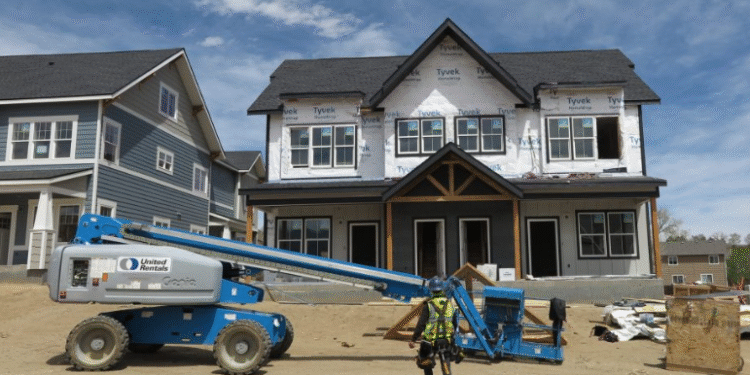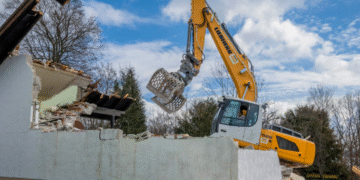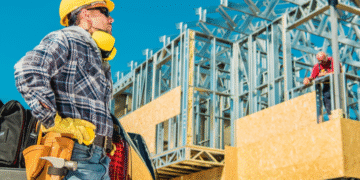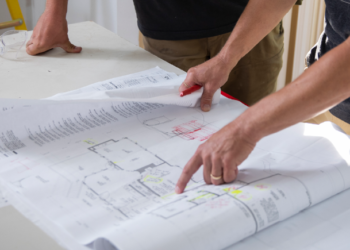Sometimes, creating something new means letting go of the old. In the world of home improvement and property development, residential demolition is often the essential first step in bringing fresh ideas to life. Whether you’re clearing out a dilapidated structure or preparing a block for a modern rebuild, the process of tearing down a house is far more involved than just swinging a sledgehammer.
Residential demolition is a delicate balance of precision, safety, and planning. Here’s what to expect when it comes to dismantling a home to make space for something new.
Planning: The Foundation of a Successful Demolition
Inspection and Evaluation
Before any demolition begins, a thorough inspection of the property takes place. This includes checking for structural concerns and hazardous materials, such as asbestos, and understanding the layout of utility lines. It’s not just about knocking things down, it’s about doing it safely and responsibly.
The condition of the home and its surrounding environment determine the approach to demolition. For example, older homes might require more care during tear-downs due to weaker materials or the presence of outdated construction practices.
Permits and Local Regulations
Strict laws and regulations govern the demolition of residential properties. Professional teams handle the necessary paperwork to secure permits and ensure compliance with local building codes and regulations. In areas like Brisbane, this also means adhering to neighbourhood neighbourhood guidelines and regional environmental standards.
Understanding the legal side of residential demolition in Brisbane is crucial for a smooth and conflict-free project. Without the proper permits, work can be delayed or result in fines, creating unnecessary stress and additional costs.
Choosing the Right Type of Demolition
Mechanical Demolition
This is the most common method for tearing down an entire house. Large machinery such as excavators or bulldozers is used to dismantle the structure quickly and efficiently. It’s ideal when you need to clear a property to start from scratch completely.
Deconstruction
Also known as “soft demolition,” deconstruction involves carefully dismantling the house piece by piece to salvage reusable materials. Windows, doors, timber, and fixtures are often made from reclaimed materials. This method is more labour-intensive and takes longer, but it can reduce waste and potentially save money on future construction.
For residential demolition in Brisbane, many homeowners opt for a combination of both methods preserving valuable materials while efficiently clearing the structure.
Utility Disconnection and Site Prep
Shutting Off Services
A vital yet often overlooked aspect of demolition is disconnecting all utilities before work commences. This includes electricity, gas, water, and sewage lines. Failure to do so can lead to dangerous accidents or damage that delays the project.
Professional demolition teams coordinate with service providers to ensure every line is properly capped or removed before any structural work starts.
Securing the Site
Demolition is noisy, dusty, and potentially hazardous, so securing the site is a must. Temporary fencing is typically erected to keep the public safe, and neighbours are usually notified about the upcoming work. Dust control measures, such as water sprays, help reduce the spread of debris through the area.
Carrying Out the Demolition
Step-by-Step Breakdown
Once preparations are in place, the demolition begins. Workers begin with the roof, followed by the walls and foundation, ensuring a controlled collapse and minimal impact on the surrounding area. Depending on the method used, the process can take anywhere from a single day to several weeks.
For properties undergoing residential demolition in Brisbane, this phase is often completed with strict attention to weather conditions, traffic flow, and noise regulations to minimize community disruption.
Debris Removal and Waste Management
Tearing down the house is only part of the job. Removing the rubble and managing waste responsibly is equally essential. Concrete, wood, brick, and metals are sorted and transported to the appropriate facilities. Many demolition companies now focus on sustainability by recycling as much material as possible.
This eco-conscious approach not only benefits the environment but can also reduce landfill fees and offer potential tax deductions when reusable items are donated or sold.
Final Site Preparation
Land Grading and Soil Testing
After demolition and debris removal, the site is graded and levelled to prepare it for new construction. Soil testing may also be conducted to ensure the ground is stable and safe for a new foundation. This final step ensures your land is genuinely ready to support the next phase of development.
In growing urban areas, particularly during residential demolition in Brisbane, this aspect of the process helps meet modern building standards while adapting to the region’s unique terrain and climate.
What to Look for in a Demolition Team
Experience and Licensing
Not all demolition contractors are created equal. Look for a team with a solid track record in residential projects, proper licensing, and insurance coverage. This protects you in the event of unexpected issues and ensures the team follows best practices.
Transparent Communication
From the first quote to the final clean-up, good communication is key. A reliable demolition team keeps you informed at every stage, outlines expected timelines, and addresses your concerns. They may even provide access to a website with updates or progress reports during the project.
Conclusion
Residential demolition is about more than just destruction it’s about clearing the way for new possibilities. When done correctly, it lays a solid foundation for your next big project, whether that’s building your dream home or investing in a modern development.
By understanding the steps, preparing thoroughly, and selecting the right professionals, you can transform what seems like an end into an exciting new beginning. Whether you’re undertaking residential demolition in Brisbane or elsewhere, knowing what to expect empowers you to move forward with confidence and clarity.










